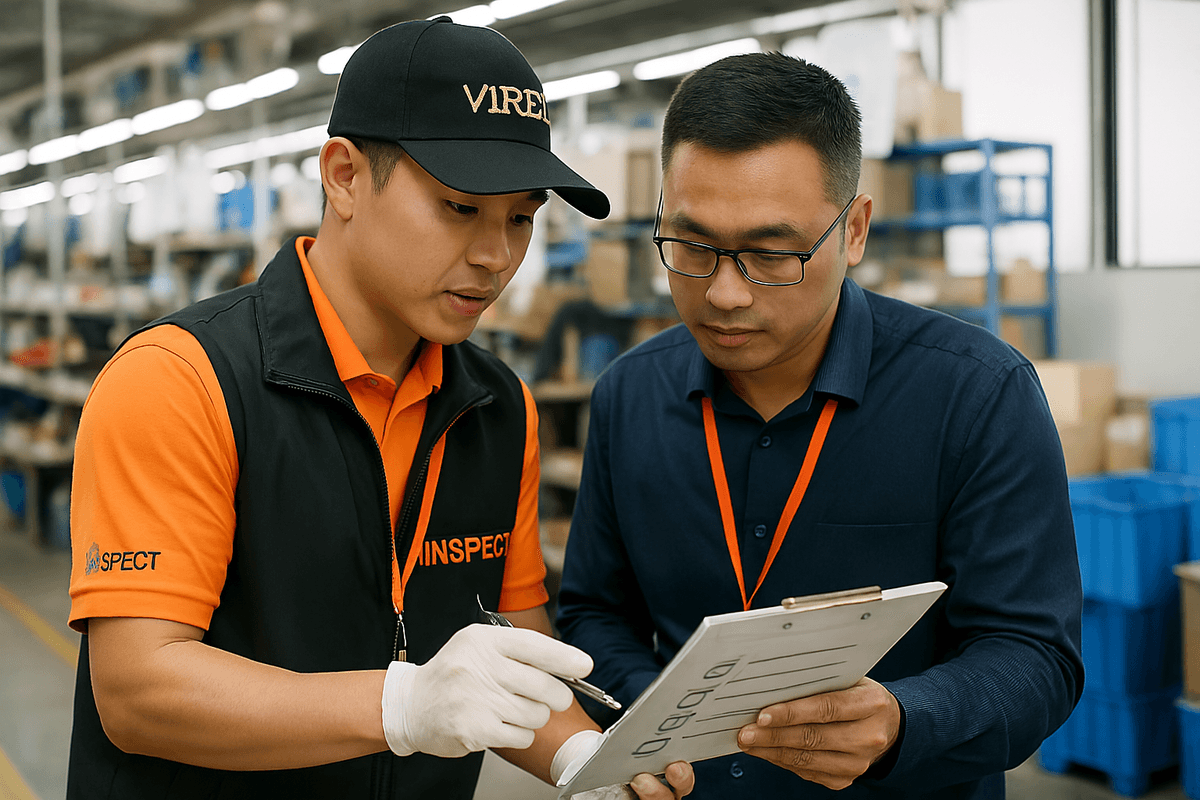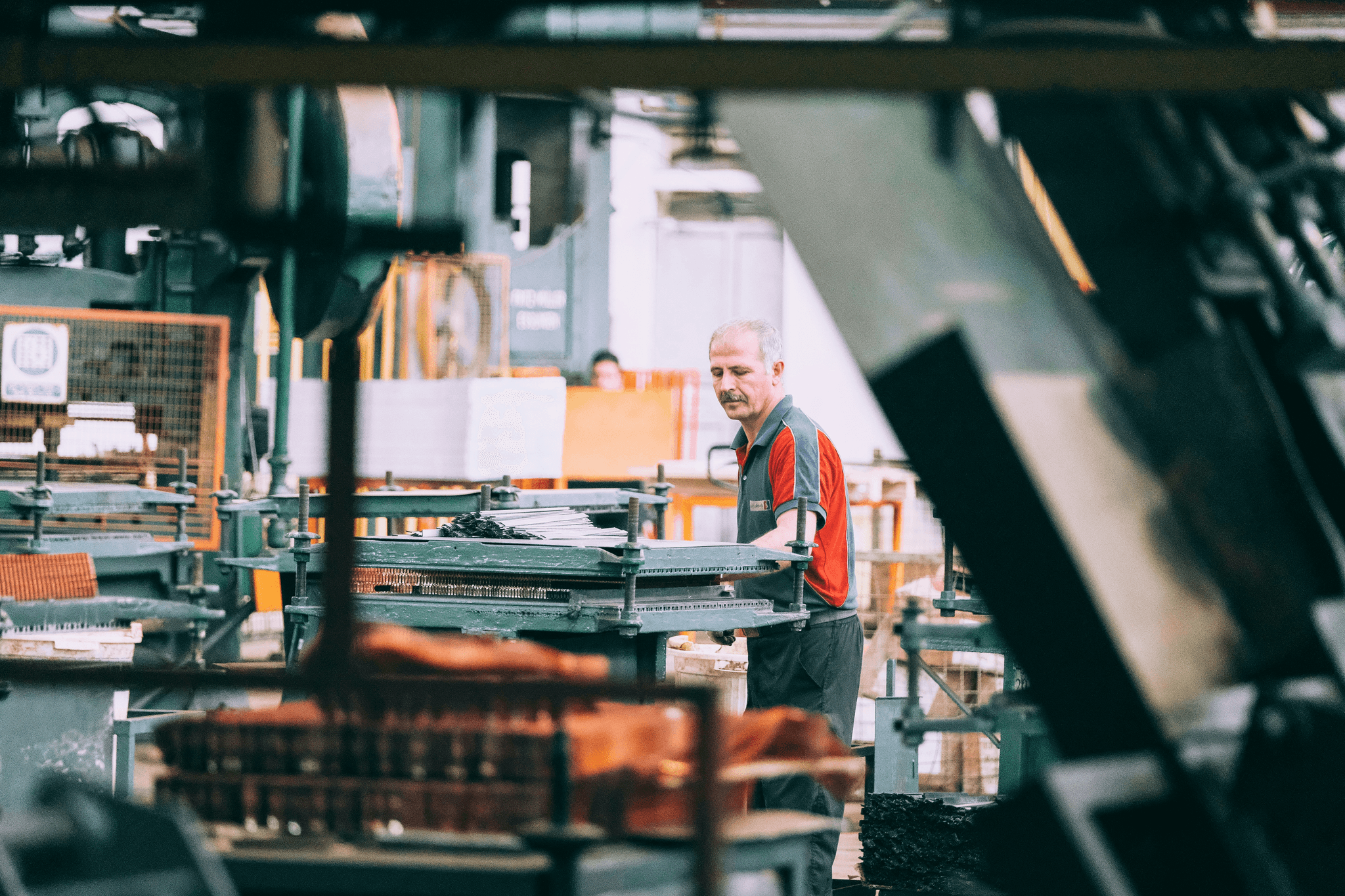Introduction

In the dynamic world of global commerce, understanding the significance of supplier audits is crucial for businesses that source products from abroad, particularly from China. Supplier audits serve as a vital tool in ensuring that manufacturers adhere to quality standards and regulatory compliance. As companies increasingly rely on international suppliers, the question arises: how do we ensure that our partners meet our expectations?
Understanding the Importance of Supplier Audits
Supplier audits are essential for assessing the capabilities and practices of suppliers, especially in China where manufacturing processes can vary widely. By conducting a thorough supplier audit in China, companies can identify potential risks associated with quality control, labor practices, and environmental compliance. This proactive approach not only mitigates risks but also enhances overall supply chain transparency.
Key Benefits of Auditing Suppliers
The benefits of auditing suppliers are manifold; they include improved product quality, reduced risk of supply chain disruptions, and enhanced compliance with industry regulations. When asking What is an audited supplier made in China?, it becomes clear that these suppliers are vetted for adherence to specific standards which ultimately leads to better business relationships and customer satisfaction. Additionally, regular supplier audits help foster innovation within the supply chain by encouraging suppliers to adopt best practices.
Common Myths About Supplier Audits
Despite their importance, there are several myths surrounding supplier audits that can lead to misconceptions about their necessity and effectiveness. One common myth is that audits are only required when issues arise; in reality, regular assessments help prevent problems before they escalate—prompting questions like “Is audit mandatory in China?” While some may think that auditing is a bureaucratic burden, it actually serves as a strategic investment into long-term success and reliability within supply chains.
What is an Audited Supplier Made in China?

When we talk about an audited supplier made in China, we're diving into a world where quality, compliance, and trust intersect. An audited supplier is one that has undergone a thorough evaluation process to ensure they meet specific standards set by regulatory bodies or industry benchmarks. This process often includes rigorous inspections and assessments, making it essential for businesses looking to maintain high-quality supply chains.
Definition and Standards
An audited supplier made in China is defined by its adherence to established standards that govern production practices, safety regulations, and ethical sourcing. These standards can vary depending on the industry but typically include certifications like ISO 9001 for quality management or SA8000 for social accountability. By ensuring compliance with these standards, companies can mitigate risks associated with poor-quality products or unethical labor practices.
Role of China Inspection Pro
China Inspection Pro plays a pivotal role in facilitating supplier audits in China by providing expert inspection services tailored to the unique challenges of the Chinese manufacturing landscape. They help businesses navigate the complexities of what is an audited supplier made in China by conducting comprehensive evaluations that cover everything from factory conditions to product quality checks. With their local expertise and knowledge of regulatory requirements, they ensure that your suppliers not only meet your expectations but also adhere to mandatory guidelines.
Importance of Compliance in Manufacturing
Suppliers who are regularly subjected to audits demonstrate their commitment to quality and ethical practices, which can significantly enhance customer trust and brand loyalty. Moreover, understanding whether audit is mandatory in China helps businesses avoid potential legal pitfalls while reinforcing the importance of maintaining high operational standards across all levels of production.
Is Audit Mandatory in China?

Regulatory Framework and Guidelines
In China, the regulatory framework surrounding supplier audits is multifaceted, involving both national standards and international requirements. The government has established guidelines that emphasize the importance of quality control and risk management in manufacturing processes. Companies engaging with suppliers must familiarize themselves with these regulations to ensure they meet compliance standards during a supplier audit in China.
Moreover, organizations like the International Organization for Standardization (ISO) provide additional layers of guidelines that many companies adhere to globally. These standards not only help maintain product quality but also enhance consumer safety and trust. Thus, understanding what constitutes an audited supplier made in China requires knowledge of both local laws and international norms.
Industry-Specific Audit Requirements
Different industries have specific audit requirements that can significantly affect how often a supplier audit should be conducted. For instance, sectors such as pharmaceuticals or food production may have stricter regulations due to health implications tied to their products. This means that businesses operating within these industries must conduct more frequent audits compared to those in less regulated sectors.
Furthermore, industry-specific certifications may also dictate the frequency and depth of audits required for suppliers operating in China. For example, a manufacturer producing electronic goods might need to comply with additional safety standards set by international bodies like UL or CE marking agencies. Therefore, understanding these nuances can help businesses navigate the complexities of what is an audited supplier made in China.
Consequences of Non-Compliance
Failing to adhere to audit requirements can lead to serious repercussions for businesses sourcing from suppliers in China. Non-compliance can result not only in financial penalties but also damage a company's reputation among consumers and partners alike. In some cases, companies may even face legal action if their suppliers fail to meet mandatory standards during a supplier audit china.
Additionally, non-compliance can disrupt supply chains significantly; products may be delayed or rejected at customs due to lack of proper documentation or certification from an audit process. This disruption can lead to increased costs and lost revenue opportunities for businesses relying on timely deliveries from Chinese manufacturers. Ultimately, understanding whether an audit is mandatory in China is essential for maintaining operational integrity and ensuring long-term success.
What is the Process of Supplier Audit?

Navigating the labyrinth of supplier audits can seem daunting, especially in a complex landscape like China. Understanding the process is crucial for businesses seeking to ensure that their suppliers meet necessary standards and regulations. This section will break down the process of supplier audit into manageable steps, ensuring clarity in what can often be a convoluted endeavor.
Pre-Audit Preparation Steps
Before diving headfirst into a supplier audit in China, preparation is key to success. This involves gathering relevant documentation such as contracts, previous audit reports, and compliance records to create a baseline for evaluation. Additionally, setting clear objectives for what you want to achieve during the audit will streamline the process and help focus on critical areas.
Another essential pre-audit step is conducting an initial risk assessment of your supplier’s operations. By identifying potential risks early on, you can tailor your audit approach accordingly and allocate resources efficiently. Lastly, communicating with your supplier about the upcoming audit fosters transparency and allows them to prepare adequately—after all, it’s easier when everyone knows what to expect!
On-Site Inspection Procedures
Once preparations are complete, it’s time for the on-site inspection—a pivotal aspect of understanding “What is an audited supplier made in China?” During this phase, auditors conduct thorough evaluations of manufacturing processes, quality control measures, and compliance with safety regulations. Inspectors often use checklists tailored to specific industry standards to ensure no stone goes unturned.
During the inspection, auditors may also interview staff members at various levels within the organization—this not only provides insight into operational practices but also helps gauge employee awareness regarding compliance issues. Observations made during this phase are critical; they form the backbone of any conclusions drawn about whether or not an audit is mandatory in China for that particular supplier.
Post-Audit Reporting and Follow-Up
After wrapping up on-site inspections comes one of the most important phases: post-audit reporting and follow-up actions. Auditors compile their findings into a comprehensive report detailing strengths and weaknesses identified during their review—essentially answering how often should supplier audits be done based on performance metrics observed during this evaluation period.
The follow-up process involves discussing these findings with your supplier—this dialogue not only promotes accountability but also opens avenues for improvement plans where necessary. Additionally, scheduling future audits based on current performance ensures continuous monitoring of compliance standards among suppliers engaged in manufacturing processes in China.
How Often Should Supplier Audits Be Done?

Regular audits help ensure that suppliers meet the required standards and can prevent potential issues before they escalate. But how often should these audits be conducted?
Recommended Audit Frequency
The recommended audit frequency can vary based on several factors, including the nature of the products being sourced and the risk level associated with specific suppliers. Generally, it's advisable to conduct a supplier audit at least once a year, especially for critical suppliers or those involved in high-risk industries. However, if you’re asking yourself, “What is an audited supplier made in China?” remember that more frequent audits may be necessary for new or unproven suppliers to establish a solid foundation of trust.
Factors Affecting Audit Schedules
Several factors play a role in determining how often supplier audits should occur. The complexity of your supply chain, changes in regulations (like those surrounding “Is audit mandatory in China?”), and any prior issues with compliance can all influence your audit schedule. Additionally, if there are significant changes within a supplier’s operation—such as new management or production processes—this may warrant an immediate review through what is the process of supplier audit?
Benefits of Regular Audits
Conducting regular supplier audits offers numerous benefits that extend beyond mere compliance checks. By establishing a routine audit schedule, companies can foster better relationships with their suppliers while ensuring consistent product quality and adherence to standards. Moreover, regular audits help identify areas for improvement within the supply chain and build confidence among stakeholders regarding product integrity.
Tips for Choosing an Audit Service Provider

Choosing the right audit service provider can make or break your supplier audit experience in China. With so many options available, it’s essential to carefully evaluate potential partners based on their experience, local knowledge, and specific offerings. This decision not only impacts the quality of the audit but also influences your overall supply chain efficiency and compliance.
Evaluating Experience and Expertise
An experienced auditor will be familiar with what constitutes an audited supplier made in China, ensuring they know how to navigate the complexities of local regulations and industry standards. Look for a provider that has a proven track record of conducting thorough audits across various sectors; this expertise can save you time and headaches down the line.
Moreover, consider their methodology when assessing what is the process of supplier audit? A robust approach should include pre-audit preparations, on-site inspections, and follow-up reporting that aligns with your specific needs. The right balance of technical knowledge and practical experience will yield insights that go beyond mere compliance checks.
Importance of Local Knowledge
Local knowledge is crucial for effective auditing in China due to its unique regulatory landscape. Understanding cultural nuances and business practices can significantly enhance the effectiveness of a supplier audit china process. An auditor well-versed in local laws will ensure compliance with any mandatory requirements—because yes, is audit mandatory in China?—and help you avoid unnecessary pitfalls.
Furthermore, local auditors often have established relationships with suppliers which can facilitate smoother communication during audits. This rapport can lead to more transparent discussions about compliance issues or areas needing improvement during what is often a tense process for suppliers. Ultimately, choosing a provider with strong local roots can make all the difference in achieving successful outcomes.
Why Choose China Inspection Pro
When considering who to trust with your supplier audits in China, look no further than China Inspection Pro (CIP). With extensive experience in conducting audits tailored specifically for foreign companies operating within China's complex environment, CIP stands out as an industry leader. Their team understands what is an audited supplier made in China and provides services designed not just for compliance but also for fostering long-term partnerships.
Additionally, CIP offers comprehensive support throughout the entire auditing journey—from pre-audit preparations to post-audit follow-ups—ensuring you understand how often should supplier audits be done based on your unique needs and industry requirements. Their commitment to transparency means you’ll receive detailed reports that highlight both strengths and weaknesses within your supply chain.
By choosing a service like CIP that values expertise combined with local insight, you're setting yourself up for success as you navigate what is often a challenging landscape when it comes to compliance in manufacturing.
Conclusion

In the world of global commerce, understanding the nuances of supplier audits is crucial for businesses looking to thrive. Supplier audit China has emerged as a vital tool for ensuring quality, compliance, and reliability in manufacturing processes. By embracing the strategic value of these audits, companies can mitigate risks and foster stronger relationships with their suppliers.
The Strategic Value of Supplier Audits
Supplier audits are not just a regulatory checkbox; they represent a strategic approach to quality assurance and risk management. What is an audited supplier made in China? It’s one that meets rigorous standards and complies with industry regulations, ensuring that products are manufactured to the highest quality. By conducting regular supplier audits, companies can proactively identify potential issues before they escalate into costly problems.
Building Trust Through Transparent Auditing
Transparency is key when it comes to building trust between businesses and their suppliers. Is audit mandatory in China? While not universally required across all industries, many sectors benefit from the transparency that regular audits provide. When suppliers know they are subject to thorough evaluations, it encourages them to maintain high standards and fosters a culture of accountability.
Future Trends in Supplier Audit Services
As we look ahead, the landscape of supplier auditing will continue evolving with advancements in technology and changing regulatory frameworks. The process of supplier audit is becoming more streamlined through digital tools that enhance efficiency and accuracy in inspections. How often should supplier audits be done? The trend leans toward more frequent audits as businesses strive for agility in response to market changes and consumer demands.
